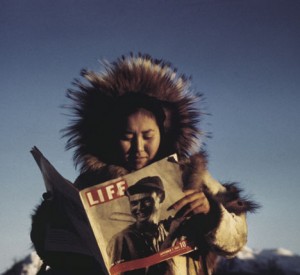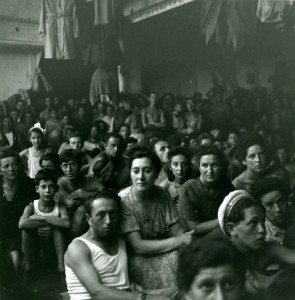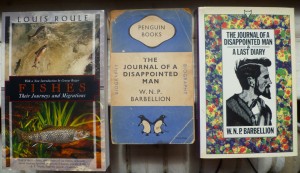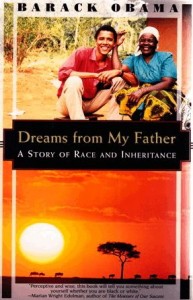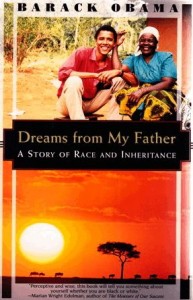Challenges Facing Agents & Editors in Publishing Today–Two Perspectives
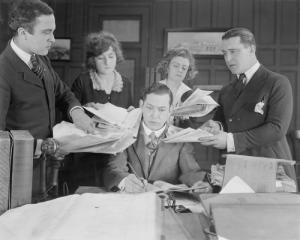 As an in-house editor at more than a half-dozen publishing companies over twenty-five years, one of my biggest challenges was always to try and keep somewhat current with the enormous volume of printed submissions (full manuscripts and proposals) that was continually flooding in across my desk. And once the Internet fully entered the workflow, the volume–owing to the greater ease with which agents and authors could submit material–took an exponential leap. The required reading, to borrow a phrase from school days, was enormous and punishing, and sometimes it really did feel like homework. My colleagues and I fought a mostly losing battle to read it all in timely fashion, while maintaining an appreciation of the vision and imagination with which the work had been created, and then deciding if it was something we could acquire, edit and publish with a fair chance of critical and commercial success.
As an in-house editor at more than a half-dozen publishing companies over twenty-five years, one of my biggest challenges was always to try and keep somewhat current with the enormous volume of printed submissions (full manuscripts and proposals) that was continually flooding in across my desk. And once the Internet fully entered the workflow, the volume–owing to the greater ease with which agents and authors could submit material–took an exponential leap. The required reading, to borrow a phrase from school days, was enormous and punishing, and sometimes it really did feel like homework. My colleagues and I fought a mostly losing battle to read it all in timely fashion, while maintaining an appreciation of the vision and imagination with which the work had been created, and then deciding if it was something we could acquire, edit and publish with a fair chance of critical and commercial success.
I always kept a log of incoming submissions, and to impose organization on the printed material I used shelving units with cubby holes alphabetized by author or agent last name, at least in theory helping me keep a visual and mental track of it all. But even with good intentions, and frequent resolutions to do better, we inevitably fell behind. This meant that first weeks, then months, and sometimes many months, might go by before we’d let an author or agent know if we wanted to pursue a project, or that we were declining it. I knew it was hard for agents and authors to accept the situation, but the truth then–and still–is that the dynamic generally favored buyers not sellers. And given the many in-house duties that editors must shoulder, there just was no way to be more on top of that part of our job.
I have not been an in-house editor for the past three and a half years, and while I am still working as an editor, now independently (and sometimes as an author reprsentative or agent)*, among the very best things about my self-employed life has been gaining some control and a level of choice over my reading life. I began reflecting on this yesterday after reading two recent opinion articles by a pair of young publishing professionals who happen to be in Britain–one an agent, the other an editor–each of which shines an up-to- the-moment light on this perennial issue in publishing. In the first article, by the agent, pseudonymously calling herself Agent Orange, “Do editors not say no because they can no longer say yes?” she laments the absurd difficulty of getting any answer at all from many editors, even a decline on a project. In anger, she writes,
There are two types of editors in London. Those (generally rather older) editors who pay authors the courtesy of letting them know where they stand. Then there are the others who seem to view it almost a matter of professional pride to never say no: they will only respond to those submissions they wish to acquire.
In a direct response to the gauntlet thrown down by Agent Orange, the editor, Francesca Main,** avers that “Working 9 to 9 Editors are More Accessible than Ever”. She writes,
I can’t speak for all editors, of course, and can only assume that there is truth in the assertion that many editors, particularly younger ones, “never say no”. But for many editors, particularly younger ones (and as a child of the 80s I’m counting myself amongst them, despite an increasing number of grey hairs), this simply isn’t the case at all.
For the record, both these commentaries were published in the online publication edited by Porter Anderson, *** Futurebook, described as “a digital blog from Europe in association with Bookseller,” the publishing magazine. Both make fair points, and if you care about these challenges each piece is definitely worth taking a few minutes to read. Taken together, they pretty well sum up the dilemmas and the challenges of working as an agent or an editor in our business today. The challenges of the agent I have come to learn recently, as I represent the handful of authors with whom I’m working. Were I still working as an editor in-house, or if I end up working in-house again at some point, I can only imagine, and sympathize, with the pressures that acquiring editors operate under nowadays, even compared to when I was last on staff.
I know there are authors among the readers of this blog, and I want to say I recognize how disappointing it is when you sense that your work is not read with the attention it is due, nor with the level of intention and focus that led to its creation. One of the toughest things about publishing is that it is a ‘cultural business’–those conjoined words create a veritable oxymoron. But, for better and worse, that is the hand we’re dealt–editors do the best they can under difficult circumstances, as do agents. As the two articles by the young British professionals attest, I hope we can all cut each other a bit of slack, and somehow make our work and creative lives a bit more rewarding and fun.
*Ethical full disclosure: Generally speaking, authors who pay me to edit their work are not authors I represent as agent, except in unusual cases, and even then only first explaining to the author this isn’t normally done to avoid conflicts of interest. These circumstances are rare.
**Though Ms. Main’s article does not reveal the house where she works, it is discoverable online that she appears to be an editor at Picador. Agent Orange, so as far as I know, has remained anonymous since posting her piece. In fact, Futurebook‘s editor Porter Anderson, makes an appeal to Ms. Orange in a comment below her published post, asking that she consider revealing her name, at least to him, so that he might continue publishing her commentaries.
*** In a comment published below Philip Jones of Bookseller clarifies the relationship of the magazine to Futurebook, and Porter Anderson’s role.


